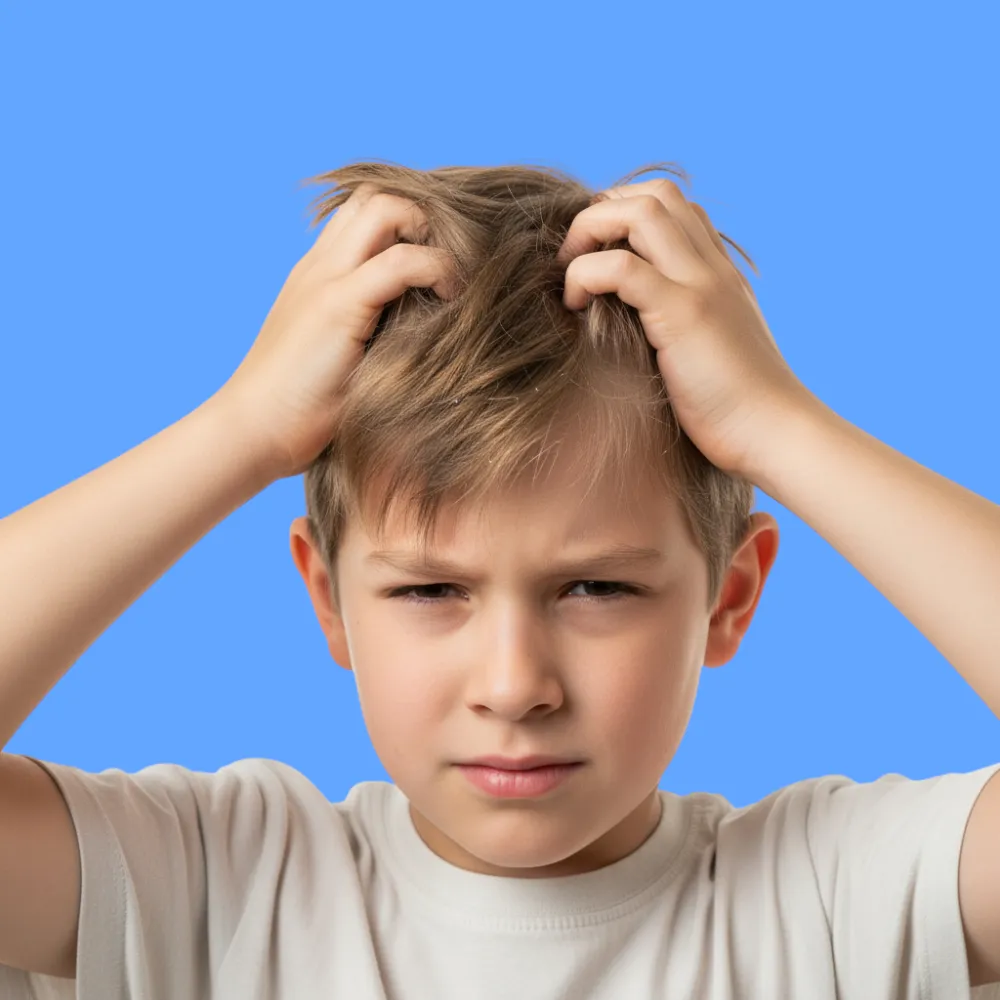what is head lice?
Head lice is considered one of the most annoying skin issues, especially among school aged children, It is a tiny insect that lives on the scalp and feeds on blood.
It spreads easily from one person to another through direct contact or sharing personal items. Its appearance is not linked to poor hygiene as commonly believed, anyone can be affected.
causes of head lice infection
The most common causes of head lice include:
- Sharing combs or brushes between individuals.
- Sleeping on contaminated pillows or bedding.
- Direct head to head contact during play or sitting.
- Using shared hats or scarves.
- Being in crowded places like schools or camps.
- Not washing personal items after others use them.
- Traveling between different regions.
- Lack of health awareness among children.
symptoms of head lice

Common symptoms a person may experience include:
- Intense itching on the scalp.
- Small red spots caused by scratching.
- Presence of tiny white eggs attached to hair.
- Sensation of movement on the head.
- Skin irritation around the neck or behind the ears.
- Difficulty sleeping due to itching.
- Skin sores from continuous scratching.
- Unusual scalp odor.
when to see a doctor?
It is advised to consult a doctor promptly if any of the following occur:
- Itching persists for more than a week.
- Signs of inflammation or pus appear on the scalp.
- Home treatments fail to eliminate the issue.
- Infection spreads among family members.
- Severe skin allergies develop.
- Swelling or pain in the scalp.
- Condition affects sleep or school performance.
- History of chronic skin conditions.
treatment of head lice
Several methods are available to treat head lice, including:
- Using medicated shampoos with insect killing ingredients.
- Applying natural remedies like tea tree oil or vinegar.
- Combing hair with a fine comb to remove eggs and lice.
- Washing personal items in hot water.
- Temporarily isolating the infected person to prevent spread.
- Thorough cleaning of bedding and clothes.
- Repeating treatment after one week to ensure full elimination.
- Consulting a doctor for resistant cases.
how is head lice diagnosed?
Head lice is diagnosed through direct visual inspection of the scalp using a fine comb or magnifying lens, where lice or eggs can be easily seen.
In some cases, the patient may be asked to wash and dry the hair before examination to assess the severity accurately.
tips to prevent infection
Recommended prevention methods include:
- Avoid sharing personal items.
- Teach children the importance of personal hygiene.
- Wash hair regularly.
- Use a dedicated comb for each person.
- Clean bedding routinely.
- Regularly check children's scalps.
- Avoid direct contact in crowded places.
- Educate the family about symptoms.
frequently asked questions
is head lice related to poor hygiene?
No, anyone can be affected.
can head lice be treated without medication?
Yes, using effective natural remedies.
does head lice cause serious diseases?
No, but it can be irritating and lead to skin infections.
can head lice return after treatment?
Yes, if eggs are not completely eliminated.
article summary
Head lice is a common skin condition that causes annoying itching and spreads quickly among individuals, especially children, Its causes include direct contact and sharing items.
Symptoms appear as itching and visible eggs in hair, It can be treated medically or naturally, and prevention is best achieved through hygiene and awareness.